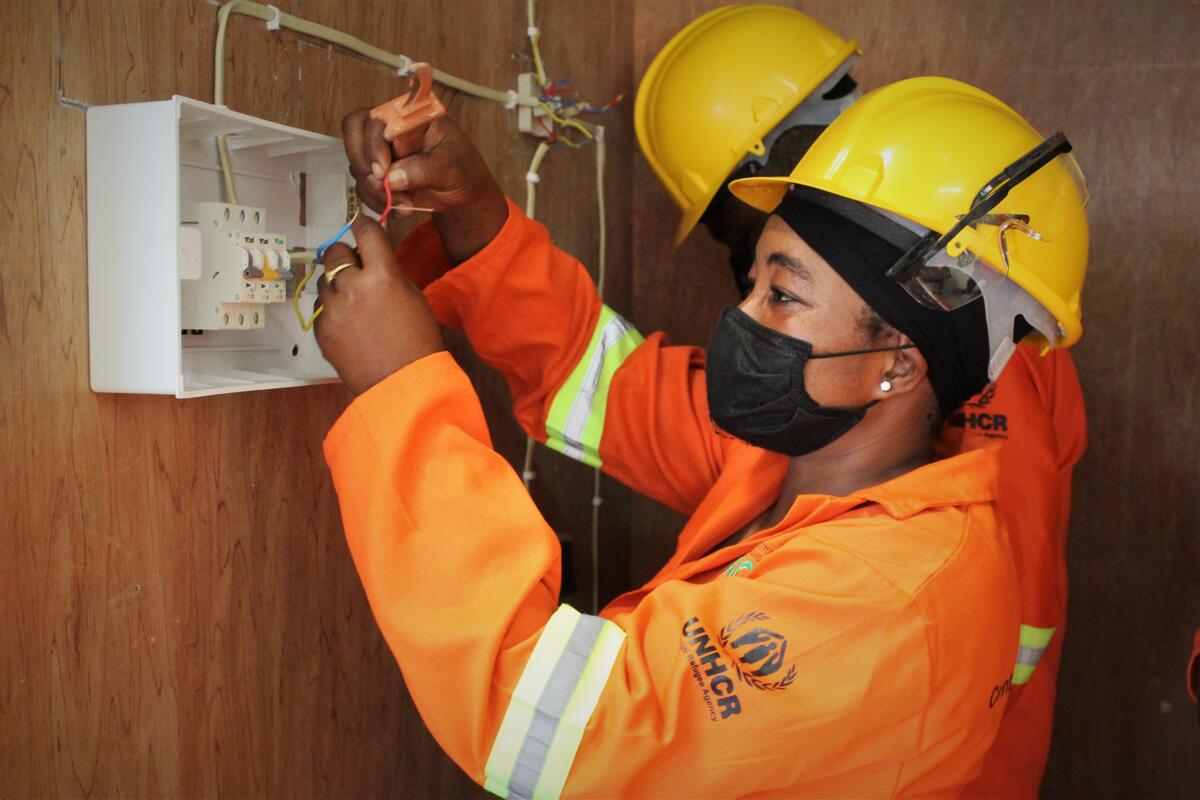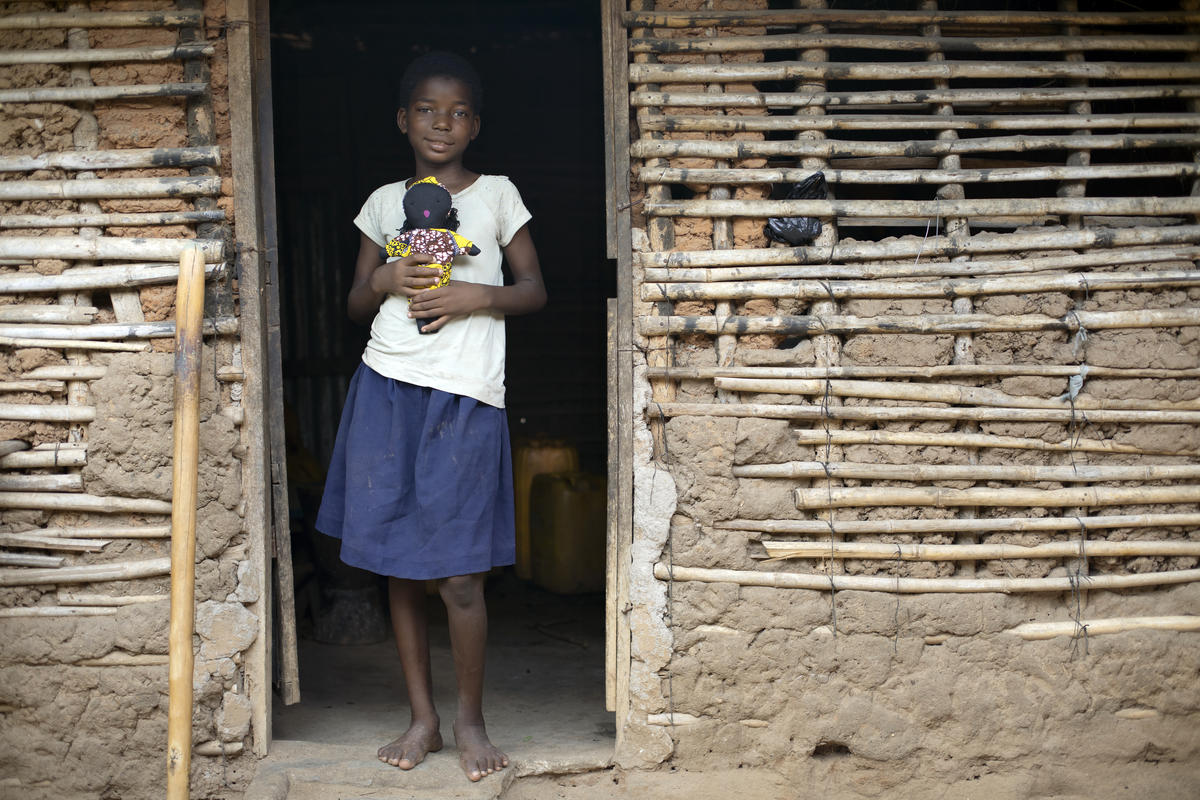by Theresa Beltramo and Sandra Sequeira

Refugees have specific vulnerabilities that make them among the poorest individuals in the world. The pandemic has exposed them to new health, protection and economic threats. In fact, refugees are confronting the deepest global economic crisis since the second World War with minimum savings and scant productive assets. For those who had a job, almost all – 99% – work in the informal sector and have no access to protection schemes when they lose them (UN Secretary General, 2020).
The recent COVID pandemic has disproportionately impacted the world’s poor. Critical comparable evidence generated by UNHCR, the World Bank and the World Bank-UNHCR Joint Data Center in some 10 countries through high frequency phone surveys highlight that marginalized groups have suffered severe job and income losses during the pandemic. While nationals in Uganda and Kenya have returned to full employment by 2020 and 2021, refugee employment still trails below pre-COVID levels (World Bank-UNHCR 2021 and World Bank, 2021). In Costa Rica, nearly 75 percent of displaced persons surveyed report lower family income compared to pre-COVID times (UNHCR and IPA, 2022, forthcoming). Recent reports cite continued economic malaise, particularly with economic growth in developing regions over 2022-23 likely to remain substantially below the pre-pandemic trend (World Bank, January 2022). Given that developing countries host 85 percent of the world’s refugees, an eroding economic base in refugee hosting countries could lead to increased tensions in refugee hosting communities.
In light of this evidence, UNHCR recognizes the need to pursue proven solutions that strengthen both refugee and host resilience. To that end, UNHCR has identified the graduation approach to support extremely poor refugees and the communities that host them. This approach, pioneered by BRAC in Bangladesh to graduate the ultra-poor to micro-credit, involves a carefully sequenced package of assistance to help individuals build economic self-reliance within a specified period (generally 12-36 months). Between 2013-2018, UNHCR piloted graduation programmes in six countries (Burkina Faso, Costa Rica, Ecuador, Egypt, Zambia, Zimbabwe).
More recently, UNHCR and its partners expanded investments in graduation programs through the Poverty Alleviation Coalition (PAC). PAC aims to raise $700 million to expand the approach to refugees and host communities in 35 countries by 2025. Given the size of the investment and the distinct vulnerabilities of refugees and other forcibly displaced peoples, it is important to understand more fully how the graduation programme works in settings associated with forced displacement.
To date, no evidence has been published measuring the impact of the graduation program on refugees. To fill that gap, we undertook an impact evaluation of a graduation programme in and around the Maratane Refugee Camp in rural Nampula, Mozambique. The camp is home to about 9,500 refugees and asylum seekers and living around the camp are approximately 16,000 host community individuals who depend on the camp for social services provided by UNHCR and by the government.
The Maratane graduation programme – funded by the US government and implemented by UNHCR – provided core livelihoods support in the form of:
- Consumption support to provide a basic standard of living as well as cash transfers for transport and investment in productive assets related to the employment track or sector selected by participants.
- Skills training including those related to resume-writing, development of soft skills, language and financial literacy, market-oriented skills and vocational training, as well as coaching services to provide encouragement, build self-esteem and to personalize interventions to individual needs.
- Facilitation with self and wage employment, including paid apprenticeships to improve linkages to jobs, which helps improve the employability of participants with limited experience. All those benefitting from self-employment support also receive personal coaching on the design of a business plan.
Early results show a positive and lasting economic and social impact on program participants compared to non-participants.
Our evaluation studied the impact of the graduation programme on employment, income, food security as well as social cohesion, trust and mental health. The evaluation included 160 household graduation participants – about half refugees and half hosts – who were enrolled in the programme from 2019-2021 and 300-plus control households. To date we have undertaken three survey waves and are planning to undertake a final survey in April 2022, more than 2.5 years after the start of the programme.
Results to date are promising, showing that participants of the graduation programme experience positive, lasting impacts on food security, income and employment when compared to control households over the same period.
- Participants in the graduation program consistently report lower food insecurity. For example, by the end of the program, participants report a 40 percent reduction in the probability of skipping meals compared to the control group.
- Graduation participants have 1.3 times more household income compared to those in the control group at the end of the programme.
- While control households report zero savings each month, graduation participants report savings on average of $14/month at the end of the programme.
- Resulting from cash transfers equivalent to 24-40 months of household income, more than 10% of participants have invested in buying or constructing a new house, and more than 10% have invested in electrical grid connections.
The graduation programme in the Matarane camp also aimed to increase the market and workplace interactions between refugees and hosts. Initial results show that the program has positively influenced social cohesion, trust, and convergence in social norms across the two communities:
- Mozambique nationals and refugees who participated in the graduation programme self-reported significant increases in levels of trust in the other group compared to non-participants at the end of the programme.
- When asked if they believe the employment of Mozambiquans should be prioritized over refugees when jobs are scarce, we find a significant improvement at the end of the programme, with more participants believing that both communities should be equally prioritized for employment.
These last findings are especially important in refugee settings where improving social cohesion between refugee and host communities can prove essential to providing long-term solutions underpinned by economic and social integration. This formative evidence is particularly impactful during this economically volatile time as the global community searches for programmes that help build resilience among vulnerable poor households. Importantly, our initial findings suggest that the graduation program in Mozambique improves both economic and social integration of refugees with hosts. We discuss this work with other practitioners this week in the World Bank’s #FragilityForum2022 Podcast – The Graduation Approach in FCV Contexts.

